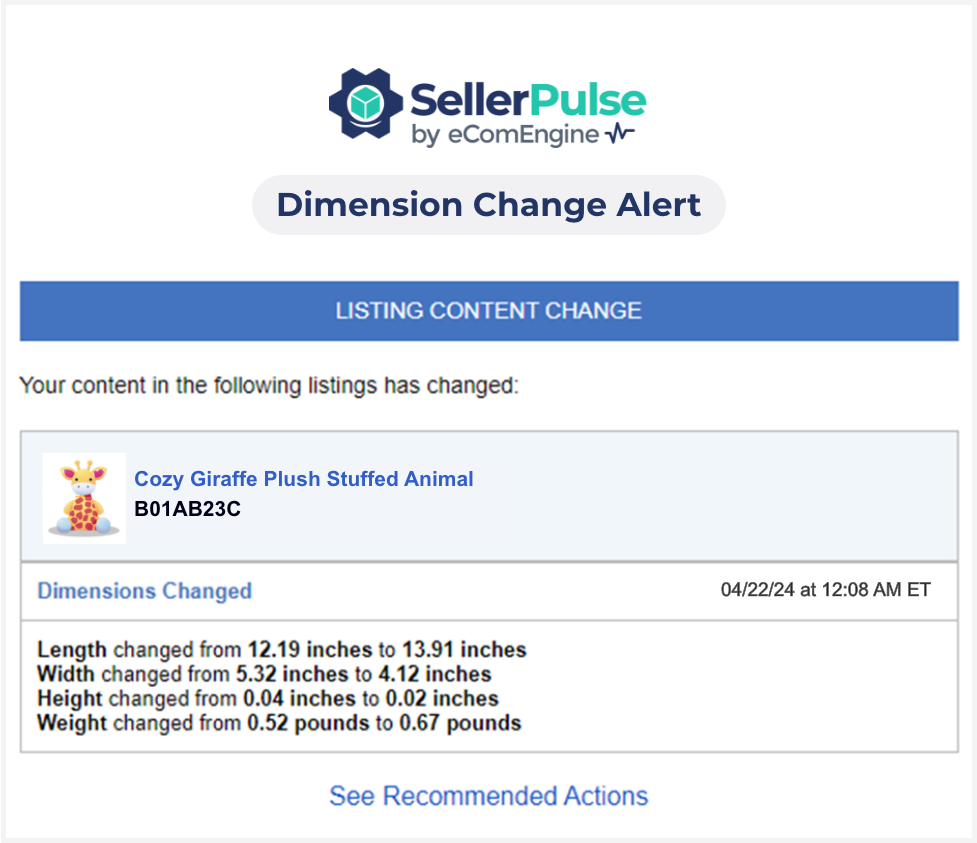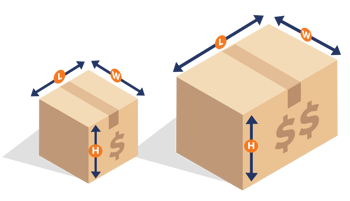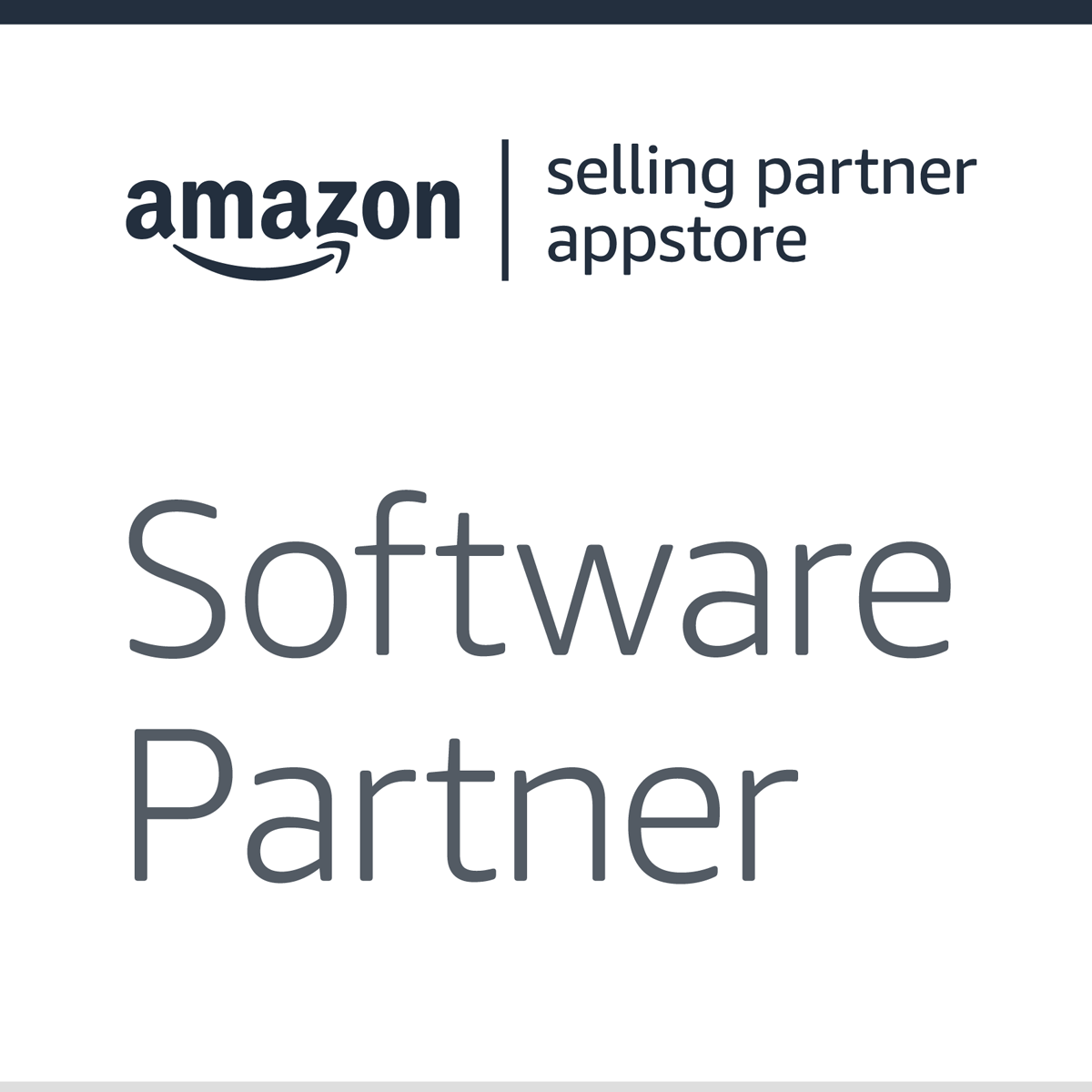Originally published on April 13, 2021, updated June 20, 2024
Menu
Join Our Email List
- Receive our monthly newsletter.
- Stay up to date on Amazon policies.
- Get tips to grow your business.
eCommerce brands get to enjoy all the savings that come from skipping the storefront and selling online. And brands that sell on the Amazon marketplace and use Fulfilled by Amazon (FBA) can potentially save even more by outsourcing warehouse costs and reducing labor needs. Yet while using FBA makes some aspects of business easier and more affordable, it presents unique complications.
One such complication is the role a product’s size and weight play in your overall costs. To accurately estimate both costs and profits, you need to factor FBA package dimensions into your overall business model.
Amazon recently introduced the Ships in Product Packaging (SIPP) program, which can help you save on packaging costs for qualified items.
Your product and package dimensions affect your business costs in three main areas.
Amazon FBA size tiers influence what your FBA fees look like. The most common Amazon product size tier to know about is standard size.
Anything bigger than what is defined by Amazon above is considered oversize. And a package tips into the super oversize category, if it’s over 150 pounds and the length (or longest side), is over 108 inches. It may also be considered super oversize if Amazon determines that it requires special handling to deliver.
Understanding the Amazon FBA size tiers is important in part because it contributes to how Amazon calculates fees related to the next category, which concerns weight.
SellerPulse by eComEngine now includes a dimension change alert! Get notified when your product dimensions are changed and request having them remeasured if they appear inaccurate. Being categorized in the wrong size tier can cost your business a lot of money!

One of the biggest expenses involved in eCommerce is shipping. And one of the main factors that influence the cost of shipping a product is its weight. Shipping a package of ballpoint pens will generally cost less than shipping a bag of rice. The density of the latter means a higher weight, even if the package size isn’t all that different.
For carriers, factoring weight into cost makes perfect sense. Delivery trucks can only hold so much weight before it becomes a safety concern. And for the people who move packages from the warehouses to trucks to their final destinations, the added weight makes the job more difficult. Amazon, understandably, passes those additional costs along to FBA sellers.
The way Amazon calculates FBA fees related to weight involves three main categories: dimensional weight, unit weight, and shipping weight.
Related reading: What Does Amazon FBA Cost?
 Dimensional weight is a calculation of a package’s volumetric weight based on its width, height, and length. Amazon may use dimensional weight in determining fees if the package matches its definition of standard sized, or if it’s considered oversized without being super oversized. For items that match these qualifications, fees will be based on either dimensional weight or unit weight, depending on which is greater.
Dimensional weight is a calculation of a package’s volumetric weight based on its width, height, and length. Amazon may use dimensional weight in determining fees if the package matches its definition of standard sized, or if it’s considered oversized without being super oversized. For items that match these qualifications, fees will be based on either dimensional weight or unit weight, depending on which is greater.
Any products that don’t fall into these categories will have fees calculated based on unit weight. Unit weight is more straightforward than dimensional weight: it’s the scale weight of the item once packaged.
Shipping weight is the item’s weight plus the weight of its packaging. So depending on whether Amazon uses dimensional or unit weight for that item, you start with that number and then add the weight of any packaging materials that are used in shipping it.
That all sounds complicated, and it certainly can be. But the more experience you gain with FBA, the more familiarity you’ll have in figuring out what to expect when it comes to packaging weight and the associated fees.
Related reading: 9 Strategies for Reducing Amazon Shipping Costs
Your package dimensions don’t only start to matter the moment Amazon is preparing them for shipping. Storage is another big part of the FBA service, and the space your products take up directly contributes to your costs as well. Storage fees are calculated based on the daily average volume your inventory takes up in Amazon warehouses, measured in cubic feet.
Your costs vary based on the time of year and whether your products are standard-sized or oversize. Your costs will go up if your products are considered dangerous goods or for any items that stay in storage for over a year without being sold. (Tip: to avoid long-term storage fees, you want a good system for FBA inventory management in place.)
Using FBA takes some of the complications of running an eCommerce business off your plate. But as you can see, it also introduces new challenges. Staying on top of all the different categories and fees related to Amazon FBA package dimensions can seem overwhelming at times, but it’s an important part of running a successful eCommerce business as an Amazon seller.
Originally published on April 13, 2021, updated June 20, 2024
This post is accurate as of the date of publication. Some features and information may have changed due to product updates or Amazon policy changes.
These Stories on Inventory
14321 Winter Breeze Drive
Suite 121 Midlothian, VA 23113
Call us: 800-757-6840





Copyright© 2007-2025 eComEngine, LLC. All Rights Reserved. eComEngine®, FeedbackFive®, RestockPro®, and SellerPulse® are trademarks or registered trademarks of eComEngine, LLC. Amazon's trademark is used under license from Amazon.com, Inc. or its affiliates.
No Comments Yet
Let us know what you think